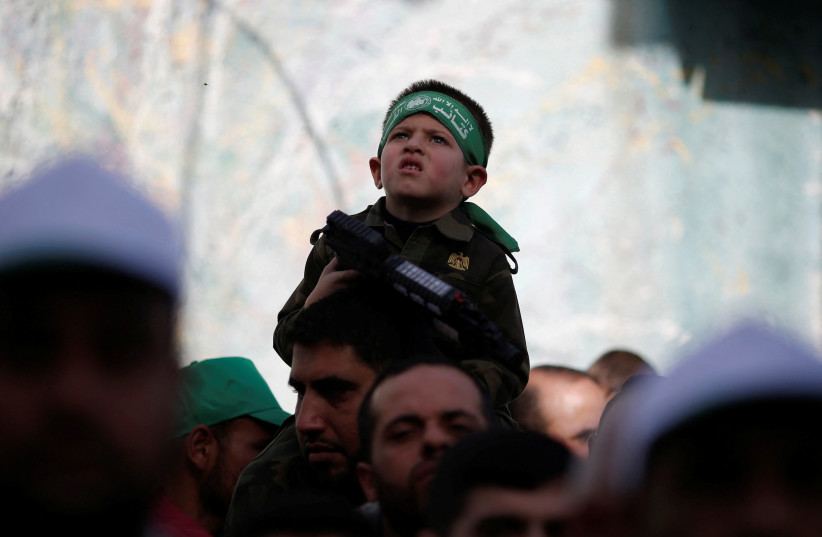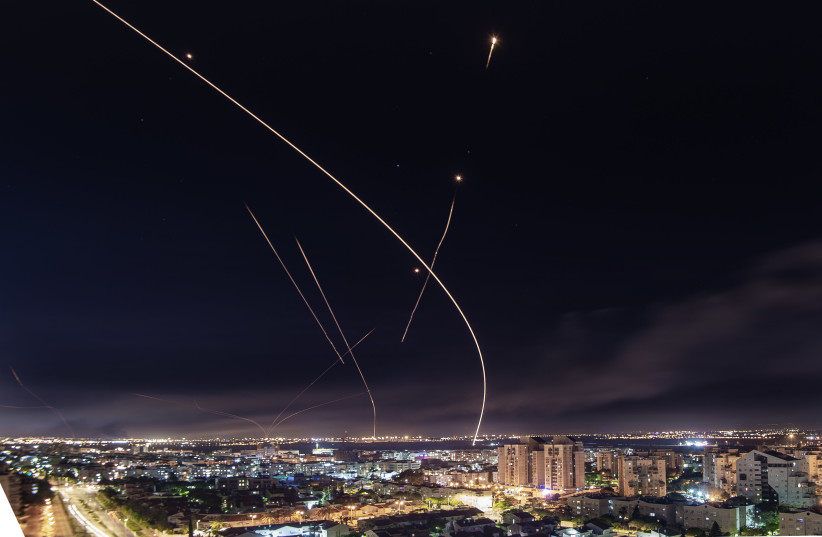Three terror attacks in one week left 11 victims and four terrorists dead in the streets of Israel. And on Thursday, a screwdriver-wielding attacker in Gush Etzion, south of Jerusalem, left a bus passenger hospitalized in serious condition before being slain.
For more stories from The Media Line go to themedialine.org
In response, the security forces have taken a series of measures in an effort to stem the wave of attacks.
While Palestinian Authority President Mahmoud Abbas condemned Tuesday’s attack in Bnei Brak, near Tel Aviv, Hamas threatened further escalation after two Palestinians were killed in a gun battle during an IDF raid in the Jenin refugee camp on Thursday morning.
“The continuous crimes of the occupation portend a total explosion, which will be still more powerful and more painful and miserable [than those that preceded it] and which our people will join in every part of our occupied land,” Hamas said in a statement.

The terrorist organization said it welcomes “the blessed month of Ramadan, the month of struggle and martyrdom and victories,” by “embracing the hands of our revolutionary heroes.”
Ramadan will begin on Saturday or Sunday evening.
Emmanuel Navon, a professor of international relations at Tel Aviv University, told The Media Line that Hamas’ issued the threat to undermine the Palestinian Authority.
“They always threaten to launch an escalation; they want to appear as the strongest opponent to Israel, as opposed to the PA and Mahmoud Abbas,” said Navon. “It’s not the first time that they try to present themselves to the Palestinians in the West Bank as the tougher antagonist against Israel.”
Lt. Col. (ret.) Jonathan Conricus, a former IDF spokesperson, agrees and told The Media Line that Hamas often acts with an eye on Palestinian public opinion.
“These internal Palestinian political considerations are always part of the picture,” he said. “They were definitely part of the Hamas decision making after the movement was disqualified from running in the elections that the Palestinian Authority planned to hold in Judea and Samaria. Then, of course, they were frustrated, and one way to vent that frustration and gain politically against the Palestinian Authority was to fight against Israel, to fire rockets at Israel, and to escalate the situation.”
Hamas in Gaza and Israel fought a 15-day war in May 2021.
Navon said, “Of course, now that there’s an escalation of violence, they [Hamas] are trying to use the threat to obtain concessions from Israel in terms of the partial blockade [on the Gaza Strip] and more entry permits to work in Israel.”
However, the experts believe that Hamas won’t necessarily act on its threat as an escalation at this time is not in the Islamist movement’s interests.
Conricus said there is always a chance that Hamas, or Islamic Jihad, will escalate the violence. However, he continued, “I think that the memories, the rubble, and the ruins from May 2021 are still very fresh in Gaza, and these usually serve as an inhibiting or deterring factor.”
Navon added, “It seems to me that at this point they are more trying to impress the Palestinians in the West Bank, and they are not actually planning to take the risk of another wave of violence.”
He explained that since the last wave of violence nearly a year ago, Hamas has been mostly deterred by Israel, adding, “The current government has lifted some of the restrictions [on Gaza], making it very inadvisable for Hamas to open a new wave of violence.”
Navon pointed out that Hamas has no economic interest in launching an escalation. “Israel has been using a carrot-and-stick policy for the past year which has been working very well, and I don’t see Hamas taking the economic risk with another wave [of violence],” he said.
Conricus believes that there are “cool heads” on both sides. “First and foremost, in Israel, the minister of defense [Benny Gantz], the prime minister [Naftali Bennett] and foreign minister [Yair Lapid], they’re all calling for and acting to mitigate the tension and de-escalate matters, understanding that escalating the situation could be a very slippery slope,” he said.
Navon explained that if Hamas decides that an escalation is not in its interest, there will be no escalation.
“Hamas has proved in the past that it can control pretty well what happens in the Gaza Strip. There are other terrorist organizations there and it doesn’t have a monopoly on violence there. But Hamas has proven in the past that when it wants to enforce a cease-fire, it is mostly able to do so,” he said.

Conricus said, “It very much depends on what happens in the next few days. If there are successful terrorist attacks and Israeli casualties, and the Palestinians in Judea and Samaria, or Arabs in Israel, take to the streets and confront Israelis, then that would probably lead to an escalation.”
However, he expressed confidence in the Israeli security services.
“I am encouraged by what I see on Israeli streets today, the quite massive presence of Israeli police and the IDF in the streets and in all the parts of Israel where there are lots of civilians. I’ve seen quite a massive deployment of Israeli police, and of the IDF, which I think is a very positive and absolutely the right thing to do,” he said.
Behind the scenes, Conricus added, “we have the IDF, the Shin Bet internal security agency, and the police working together to undermine terrorist infrastructure.”
However, he concluded, “if that isn’t successful and some terrorists actually manage to attack, then there could be a very quick escalation. We’ve seen it in the past and hopefully, it doesn’t happen this time.”
